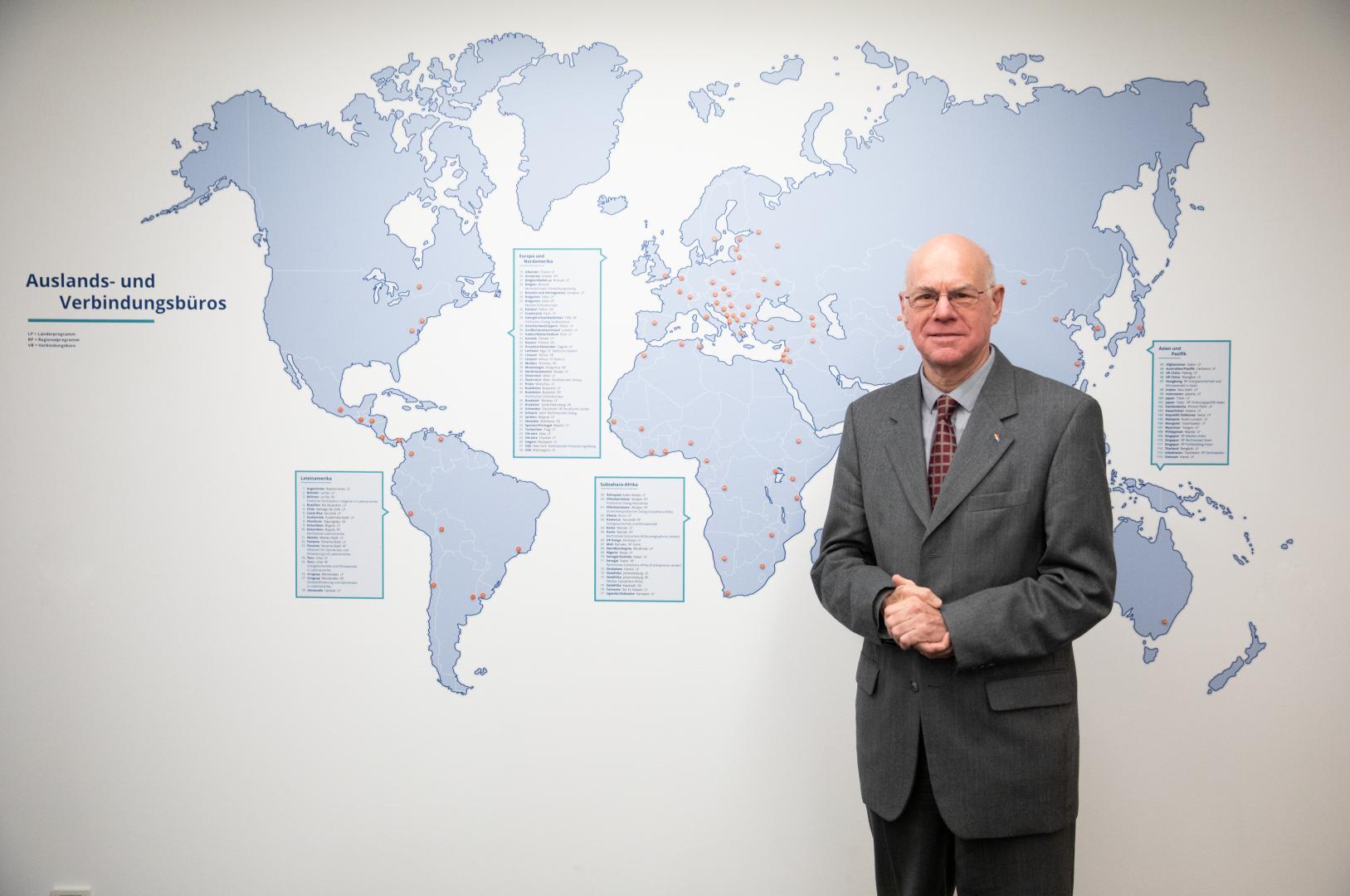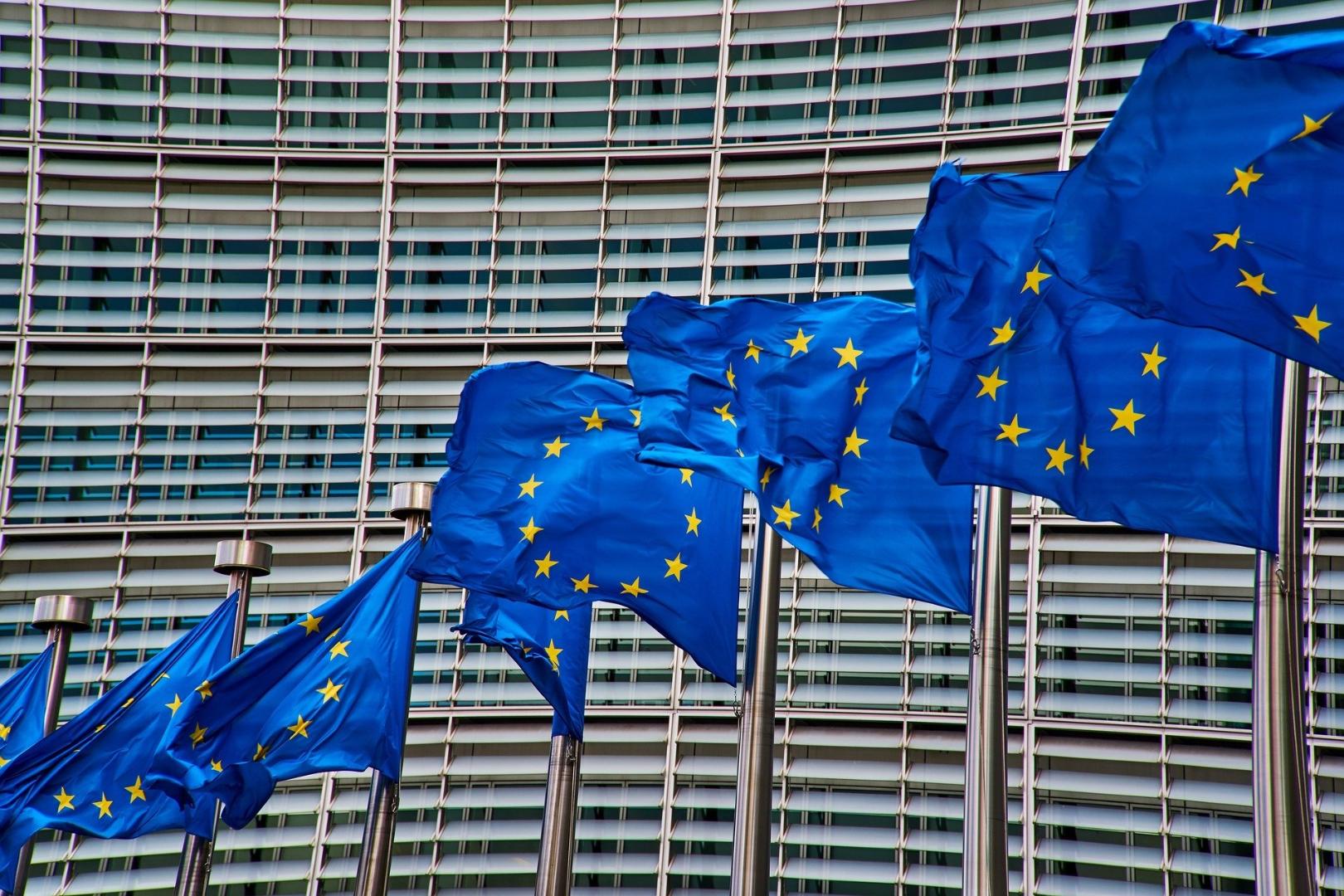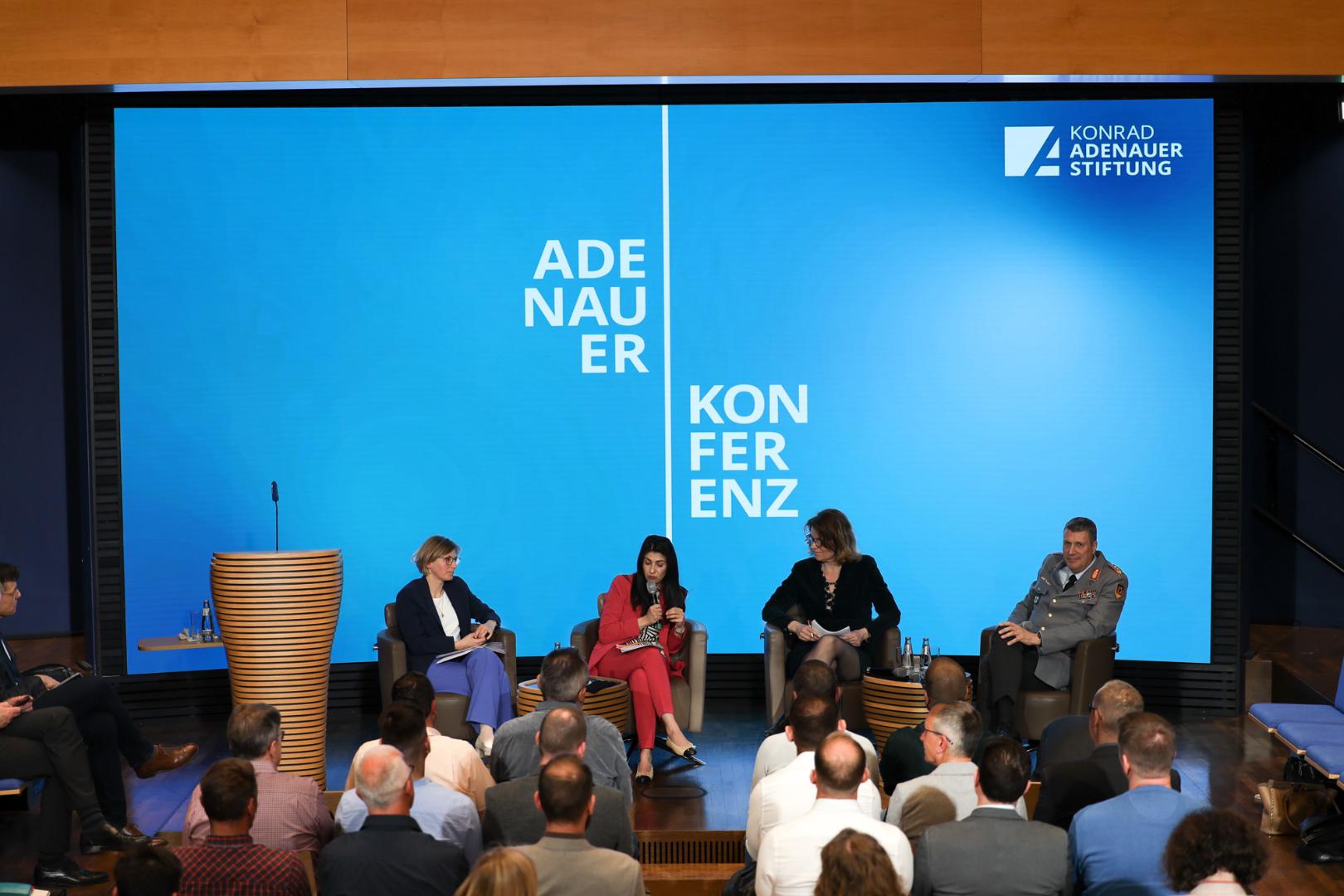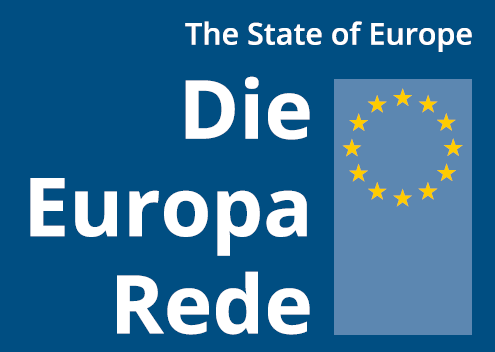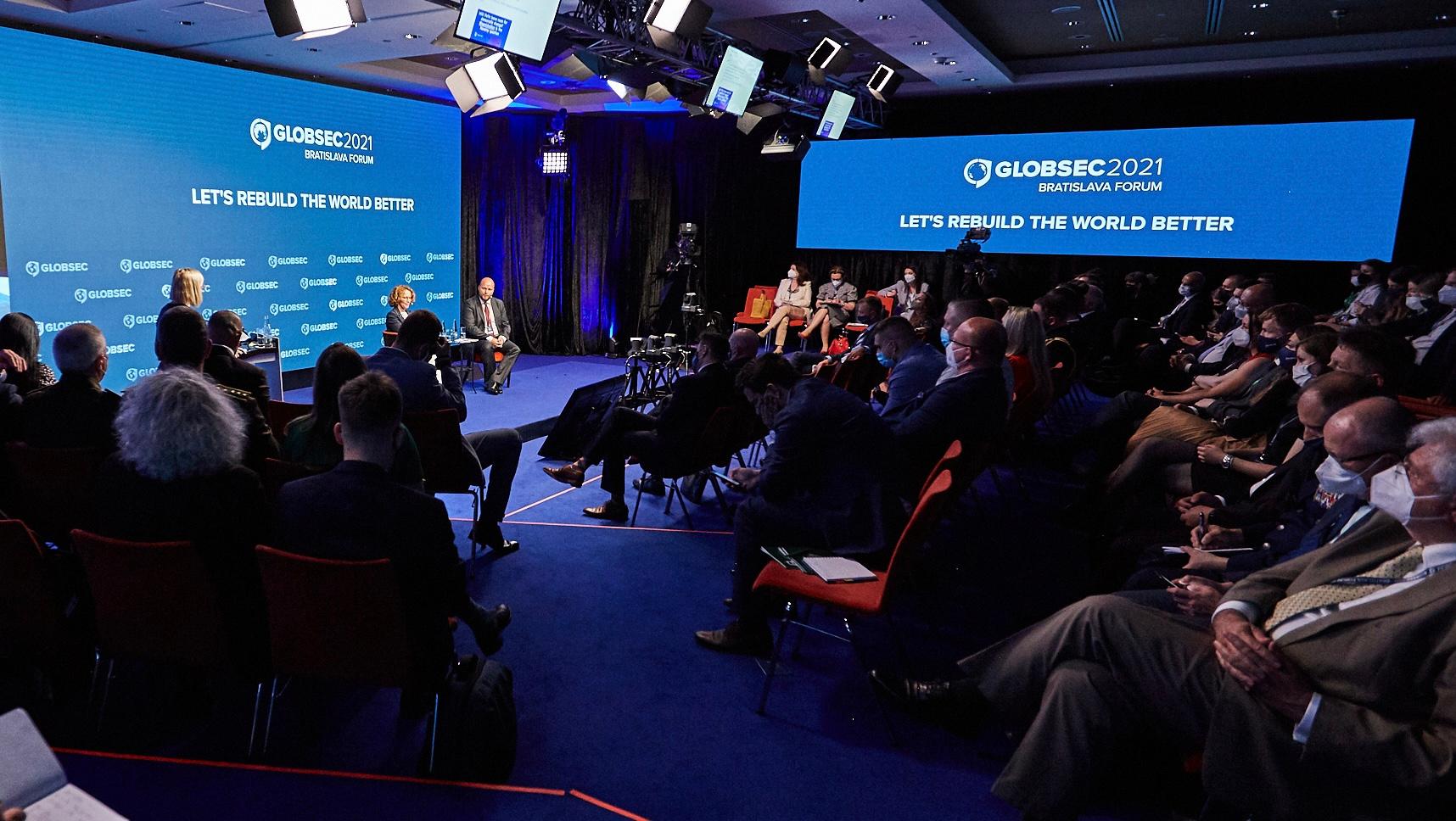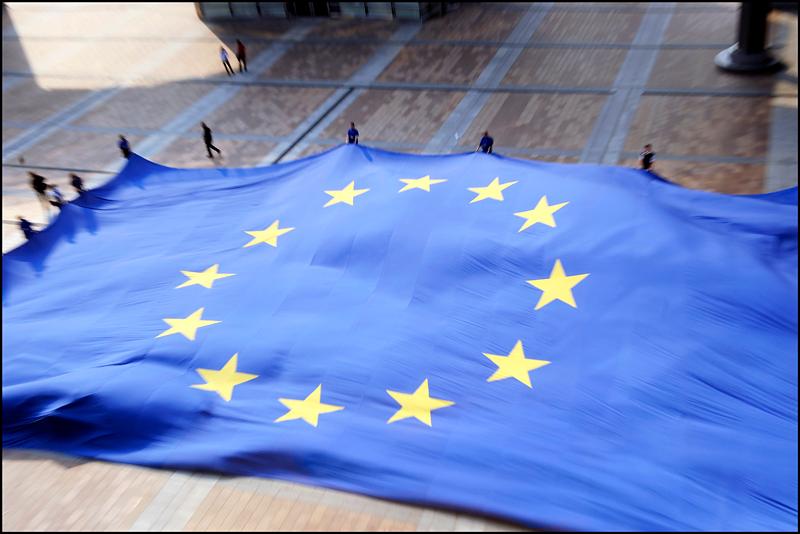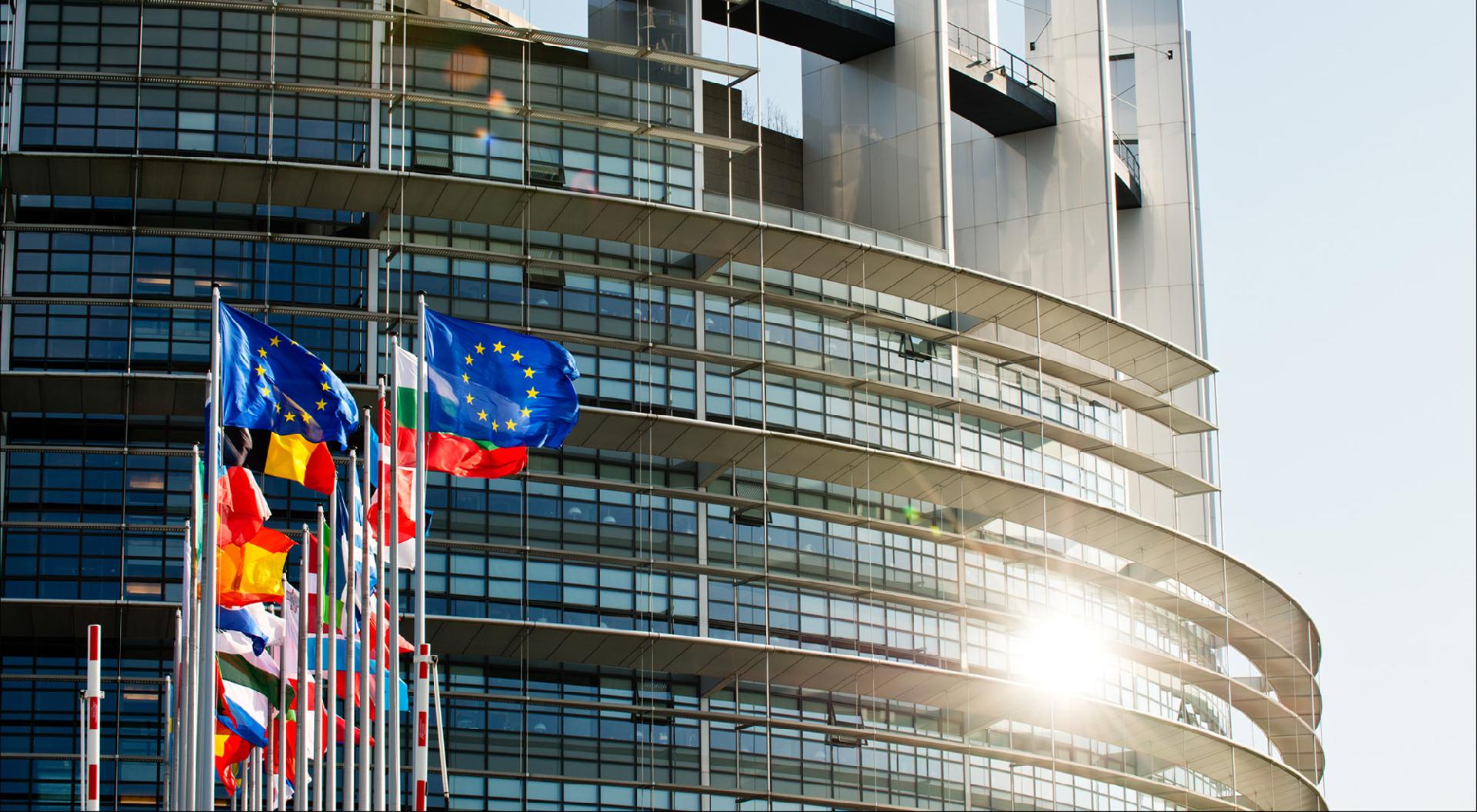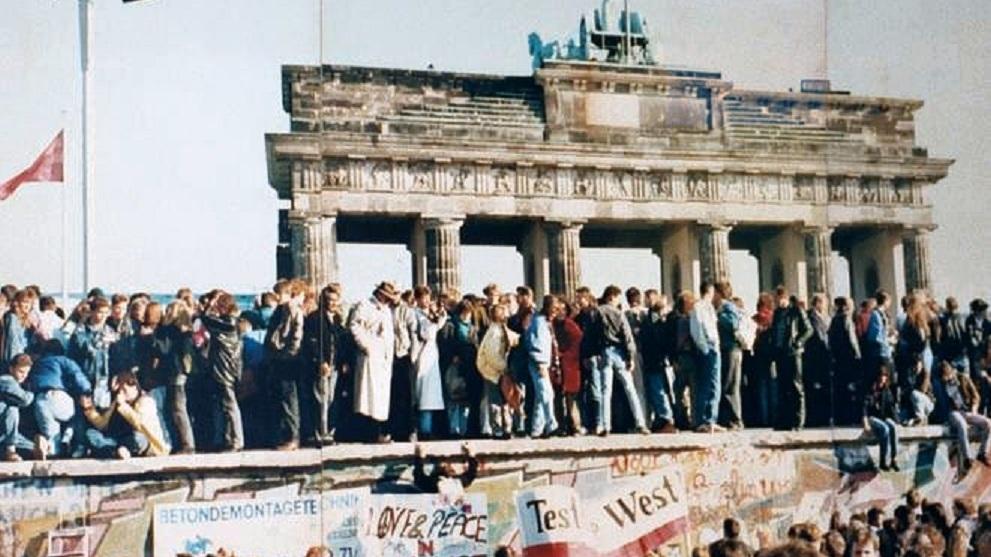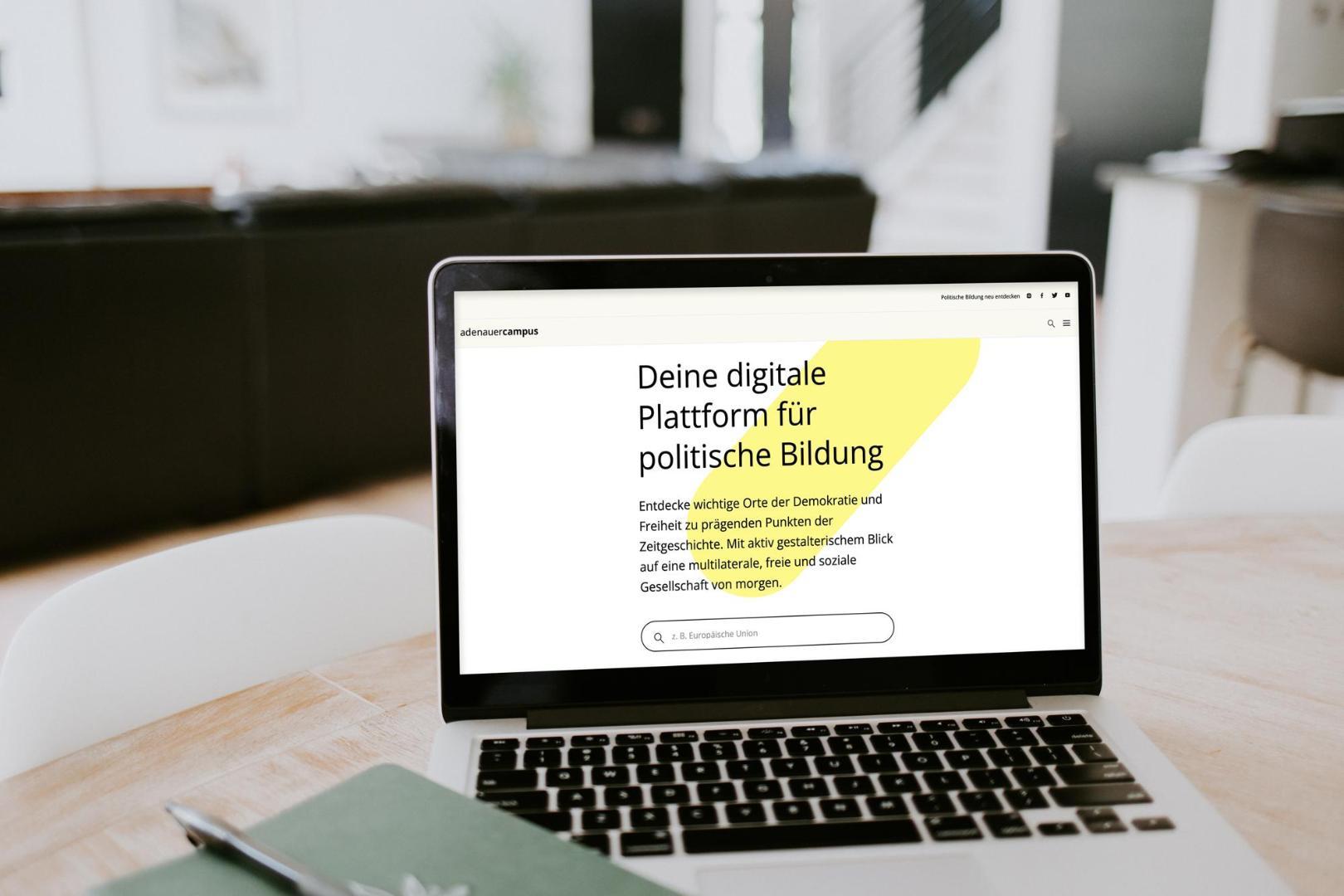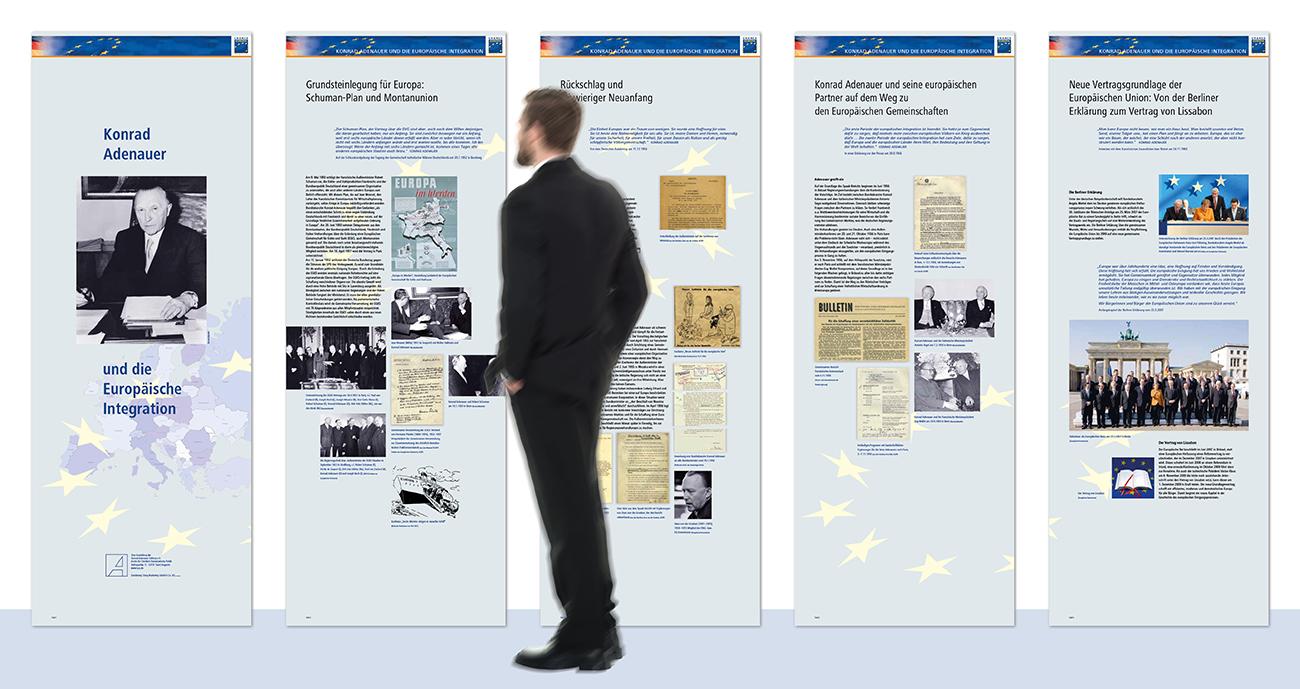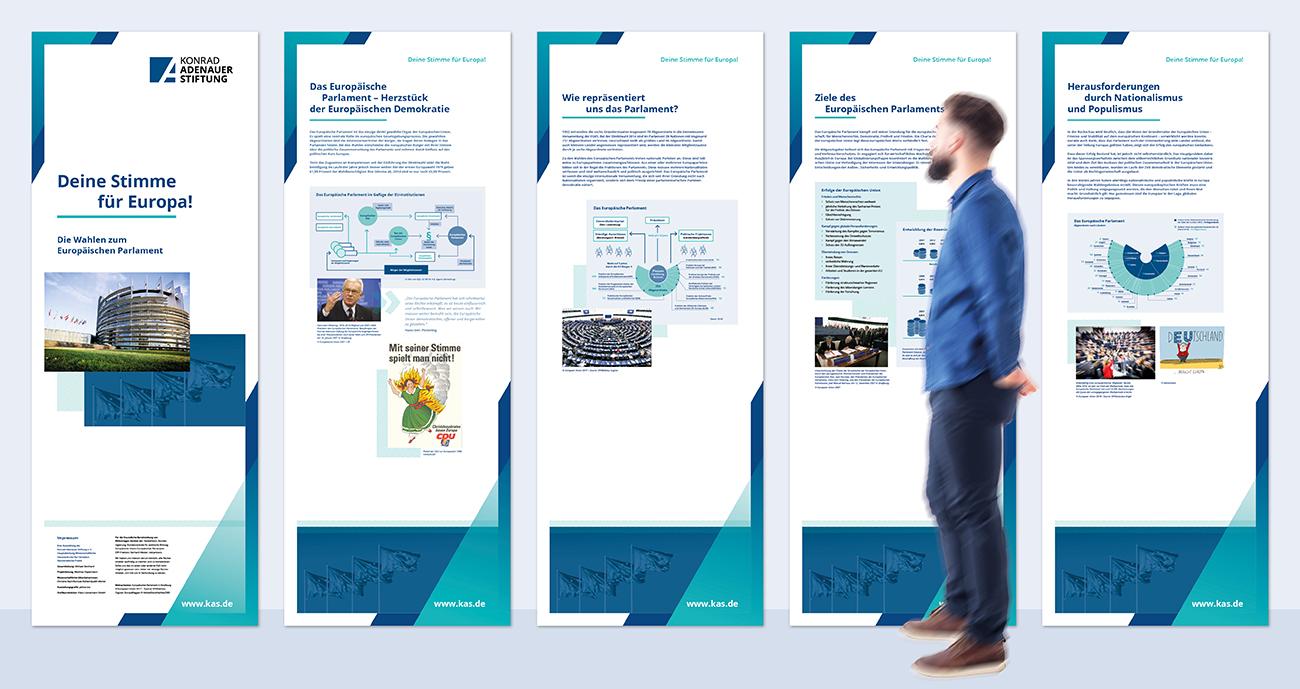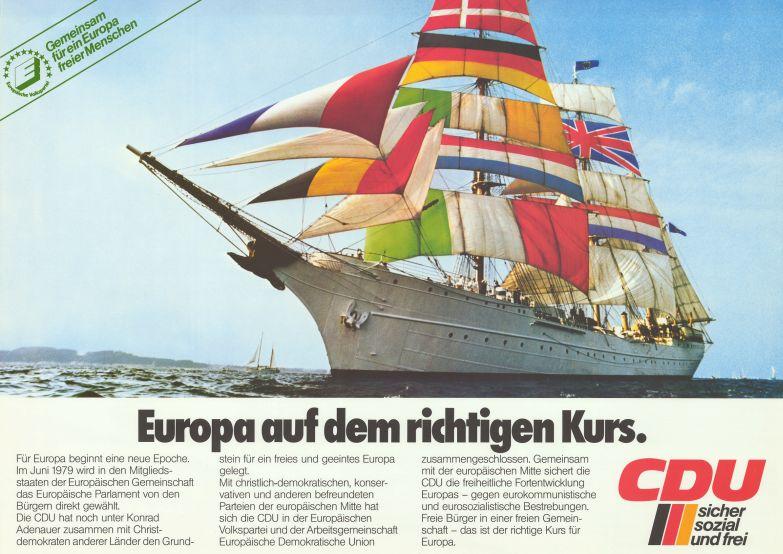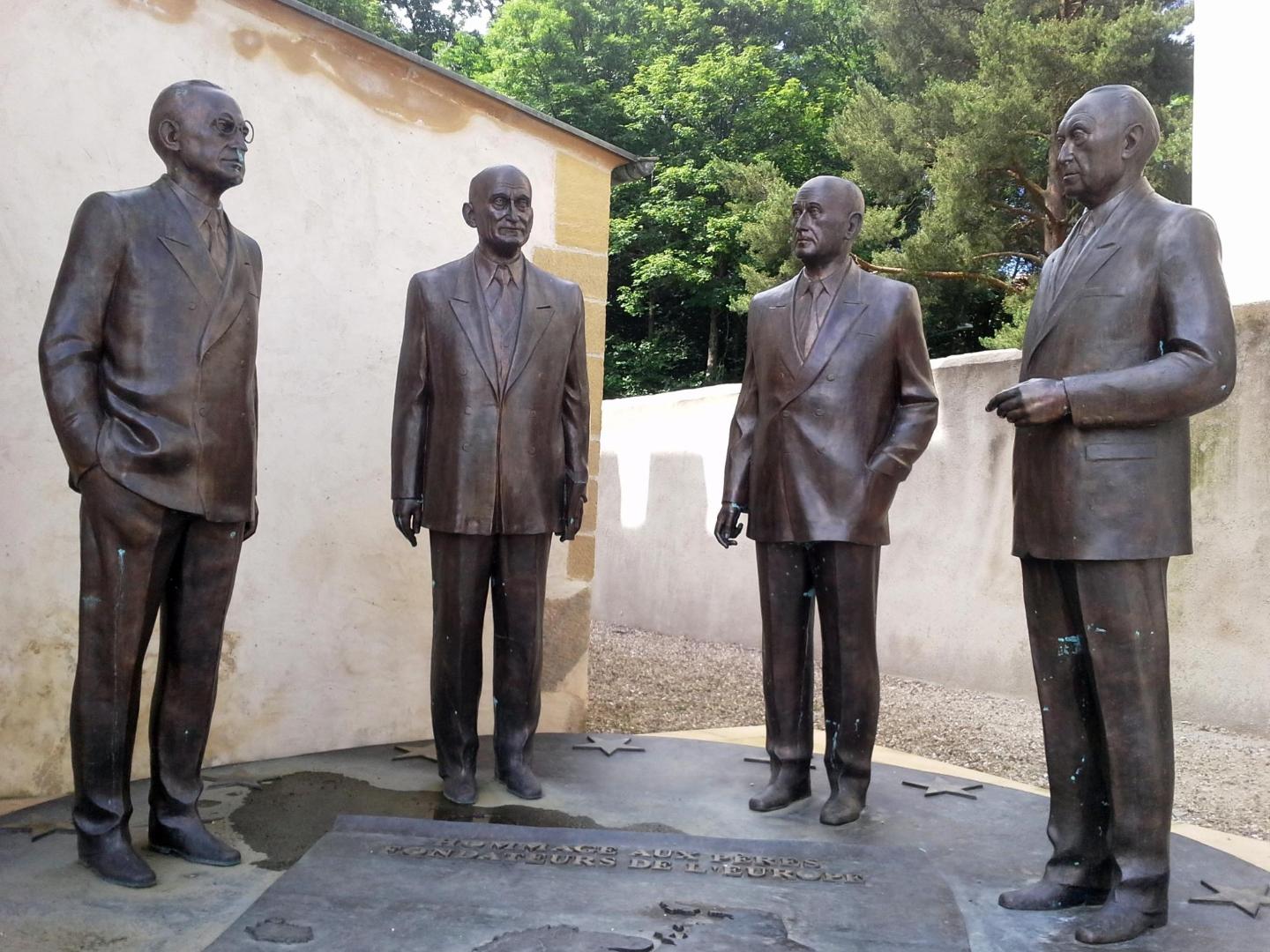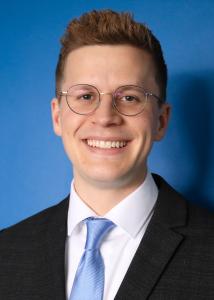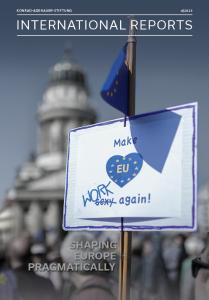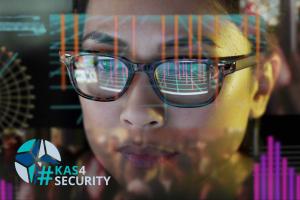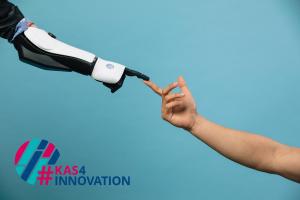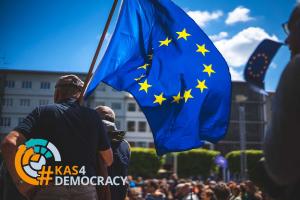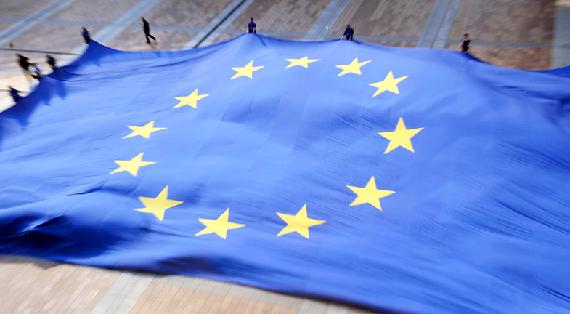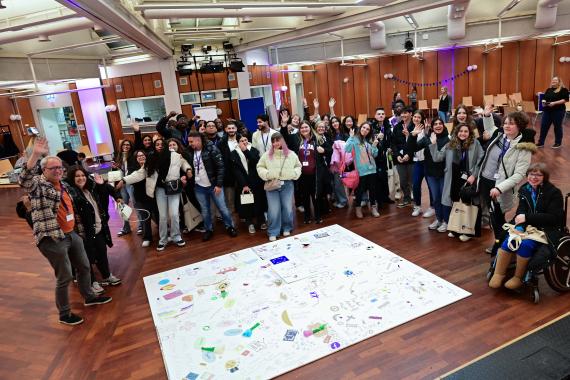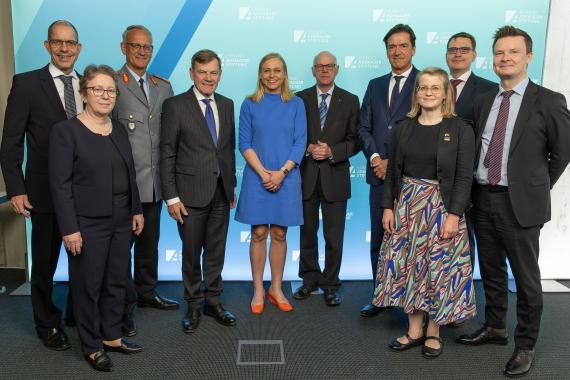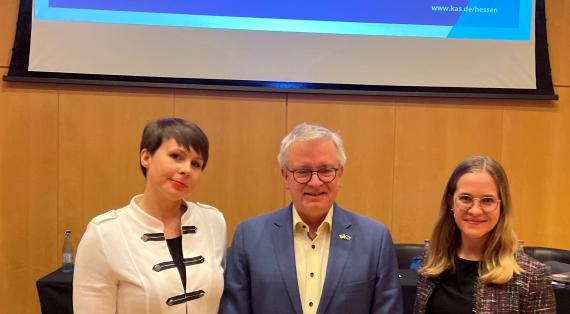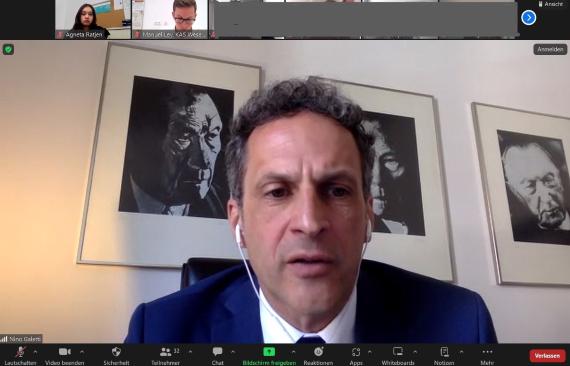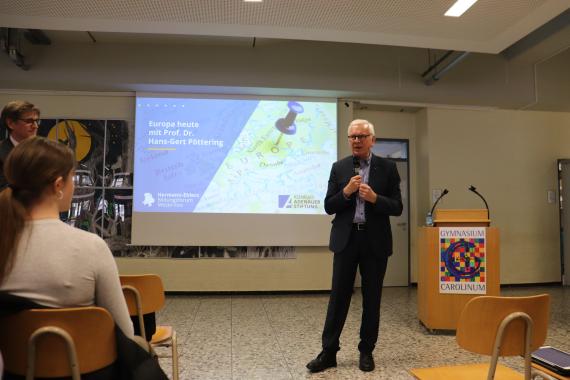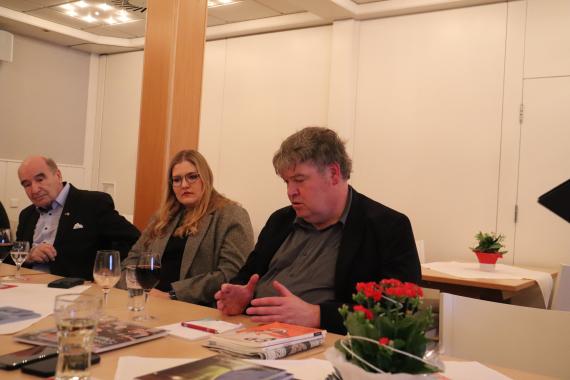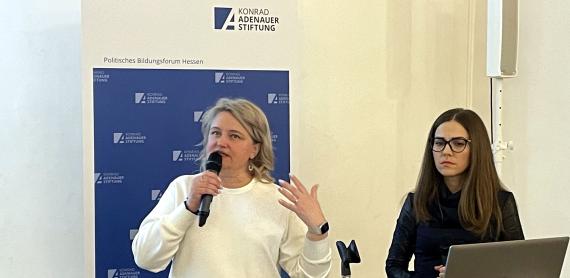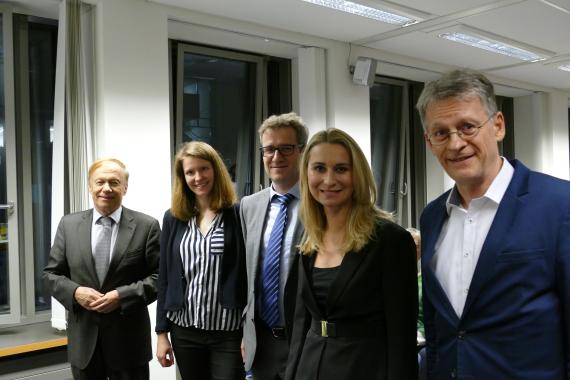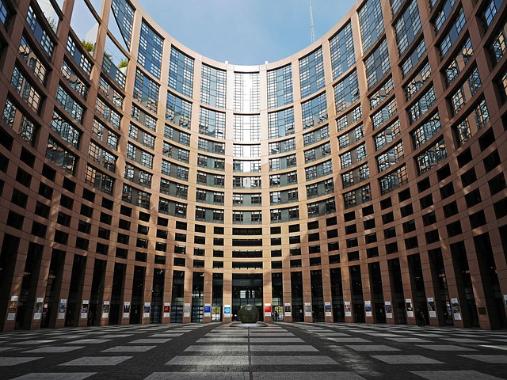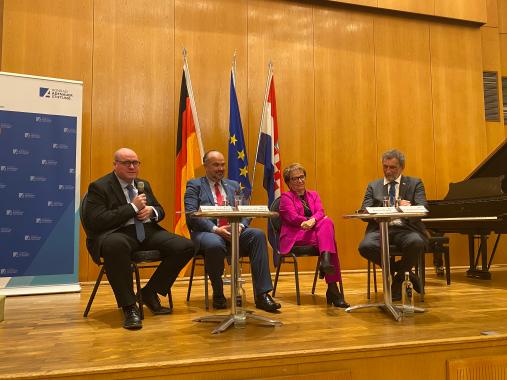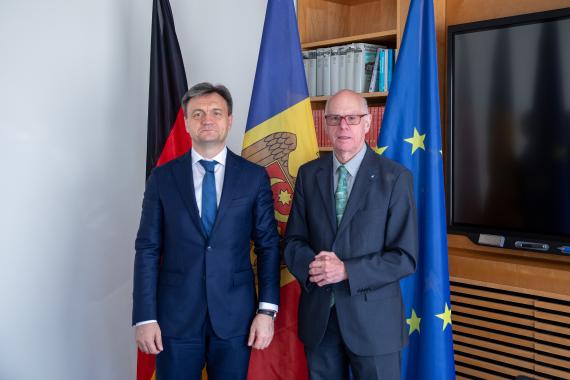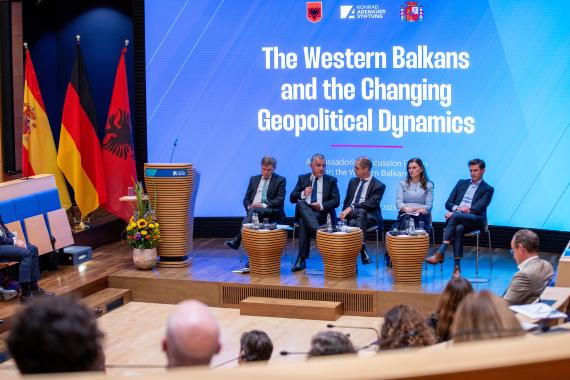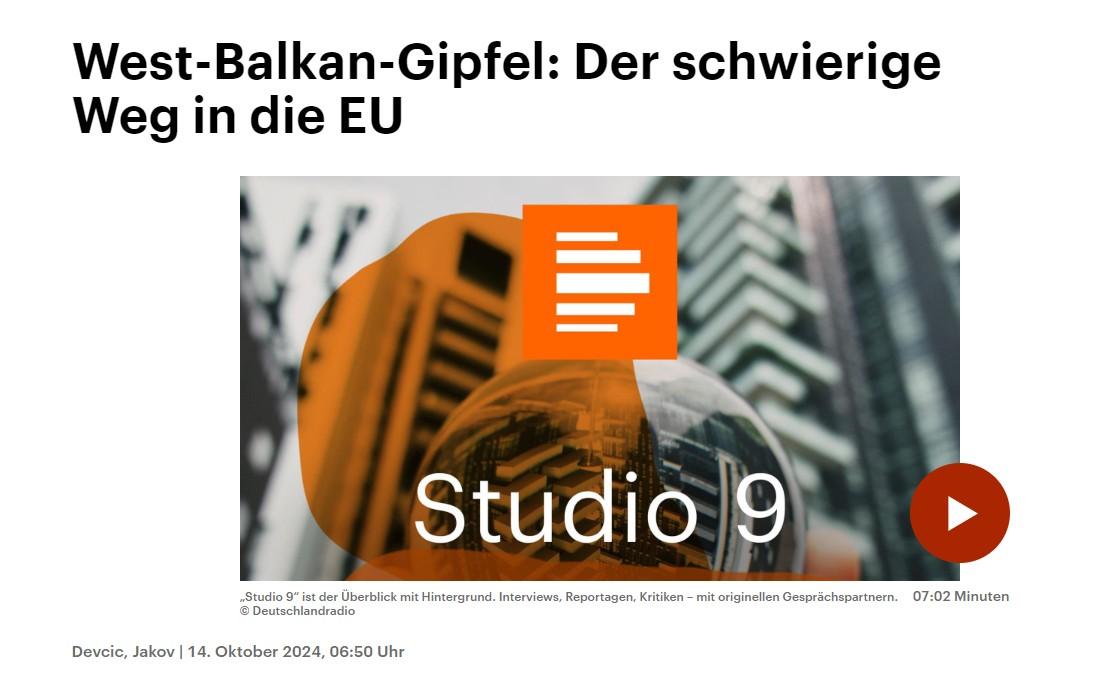We must imagine and plan for a united Europe as if it were possible to create it immediately every day, overcoming the inertia of the eternal procrastinators. If the possible is really possible, we can tackle it today.
At a glance
- The European Union is under strong pressure from global climate change, increasing systemic confrontation, the Russian war of aggression against Ukraine, domestic political crises and the rise of Eurosceptic parties.
- However, the crises of the recent past have shown that European solutions lead to a stronger Union than national solo efforts. Only common approaches promote the competitiveness and prosperity of all European states.
- As the European Foundation, we are committed to a strong, democratic, effective, citizen-oriented and sustainable Europe that speaks with one voice to the outside world.
- To this end, we network relevant stakeholders, develop recommendations for action and influence the development of the integration process and EU policy through our European Office in Brussels.
Content
1. The European Union faces challenges
2. Creating a more resilient, future-proof and effective Europe
3. Our offers and projects on the topic
4. Publications, events and media contributions on the topic
Europe has gone through many crises in recent years. This has not only meant that Europe, and therefore also Germany, has had to face new challenges; rather, various fault lines have become visible that run through Europe politically. Awareness of problems within the European Union (EU) has also increased, but this does not equate to a strengthening of the community: fundamental values and principles on which the Union is based are being called into question. Furthermore, voices skeptical of the Union on the political fringes in some member states are not falling silent.
The European Union faces challenges: War, climate change, systemic competition
The European Union is facing numerous challenges in the context of geopolitical developments: from the effects of climate change, the ongoing coronavirus crisis, Russia's war of aggression against Ukraine, new threat scenarios, including from China and intensified competition between major powers, to the electoral success of Eurosceptic and anti-European parties.
The southern member states in particular are characterized by economic weakness, enormous national debt and the consequences of the coronavirus crisis. Brexit has led to a readjustment of the relationship with the United Kingdom - many questions have not yet been conclusively clarified. Enlargement policy has been put to the test. The European Neighborhood Policy is facing new challenges in both the East and the South.
With the EU Green Deal as a growth and future strategy for the transition to a modern, resource-efficient and competitive economy, Europe is set to become the first climate-neutral continent by 2050. Confidence in European institutions is growing, despite or perhaps especially in view of a new geopolitical order. At the same time, this is accompanied by rising expectations of the EU, which are not always based on a realistic foundation. Nevertheless, in light of these crises, the EU is proving its ability to act and its appeal.
The numerous crises of the recent past in particular have shown that joint European solutions lead to a stronger Union than national solo efforts. In many policy areas, the individual member states are so intertwined and interconnected that only a common approach can promote the competitiveness and prosperity of all European states as a whole. This is why the Konrad Adenauer Foundation is committed to a European exchange across numerous policy areas and at different levels.
Creating a more resilient, future-proof and effective Europe: We are making our contribution to this
The Konrad Adenauer Foundation takes on these challenges - based on its three core themes: Innovation, Security and Representation and Participation. Through analyses and publications, expert discussions, stakeholder networking, conferences and information events, we aim to discuss causes, explore potential and identify concrete recommendations for action. The work is based on three central considerations:
Europe must increase the trust of its citizens, as the European integration process can only be successful with their support. The European institutions must therefore act in a more democratic, transparent and citizen-oriented manner.
The transfer of competences is the basis of the discussion, both to the national level - if this makes sense in view of the principle of subsidiarity - and to the European level as part of harmonization.
After all, Europe will only be able to continue to exert its influence in a globalized world if it speaks with one voice at international level. European economic, foreign, security, defense, climate, energy and development policy must therefore be strategically rethought and, where necessary, enriched with new instruments.
The Konrad Adenauer Foundation is committed to working towards a more resilient, future-proof and effective Europe through dialog and across national borders. After all, the EU has long since become a community of values and destiny that represents great added value for all the peoples of Europe.
Zur Gestaltung Europas – Workshop in Cadenabbia
Youtube
Our offers and projects on the topic
International offices and programs
The commitment to democracy, the rule of law, freedom and the social market economy can only be sustainable if it is conceived internationally. This is why the Konrad Adenauer Foundation maintains numerous offices in various European countries.
Country Offices and Regional Programmes
With more than 30 offices in European countries, the Konrad Adenauer Foundation pursues three main goals:
- to improve the political framework conditions in the countries of operation and solve problems in line with the Foundation's goals and values;
- to promote the transfer of knowledge between Germany and the countries of assignment;
- to create public forums for the representation of German political and economic interests.
Our European Offices
Our two European offices are particularly noteworthy in our European work abroad.
The European Office in Brussels has been supporting the development of the European Union since 1978. It also supports projects in Belgium, the Netherlands and Luxembourg. The aim is to positively influence the European integration process in the spirit of Konrad Adenauer. EU policy is particularly important to us. The European Office sees itself as a forum for Christian Democratic interests. The primary aim is to sharpen understanding of the basic motives behind the unification process.
The Multinational Development Dialogue program of the Konrad Adenauer Foundation in Brussels shapes the development policy dialogue with the European Union and NATO. In doing so, it contributes the experience and expertise of the KAS's worldwide project work and the interests of German development policy to the consultation processes of the European Union.
Series of events
European policy and European integration are important topics on which the Konrad Adenauer Foundation offers many different events. Of particular note are our annual conferences on security policy issues in Europe and the annual statement by Europe's highest representatives.
Adenauer Conference
At the Adenauer Conference, high-ranking experts from politics, science, think tanks, the military and business discuss current security policy challenges for Germany, Europe and transatlantic relations.
The State of Europe
The State of Europe is the annual statement by the highest representatives of Europe: the President of the Council of the European Union, the President of the European Parliament and the President of the European Commission take turns to present their positions on the idea and state of Europe. The format is a cooperation between the Konrad Adenauer Foundation, the Schwarzkopf Foundation Young Europe and the Stiftung Zukunft Berlin.
GLOBSEC Bratislava Forum
The GLOBSEC Bratislava Forum has established itself as the leading event in the field of security and international relations in the Central and Eastern European countries. Discussions at the strategic conference focus primarily on security policy issues and questions relating to the challenges of a common European and foreign policy.
Election analyses and polls
Our election analyses on the European elections and our current polls on the European People's Party (EPP) provide a comprehensive overview of the state of the EPP party family and discuss the reasons for voter migration and the performance of the German parties in the European Parliament elections.
EPP Party Barometer
The EPP Party Barometer provides an overview of the current situation of the EPP party family in the EU. Election results and surveys from the member states are summarized and presented at irregular intervals.
Elections to the European Parliament
Since 1979, the European Parliament has been elected every five years in the member states of the European Union. The election of MEPs is free, secret and direct. The Konrad Adenauer Foundation analyzes the European elections in its own publications and discusses the reasons for voter migration and the election results in Germany.
Find out more about the election analyses of the European elections since 2004
Find out more about election results of the European elections since 1979
Scholarship and didactics
The Konrad Adenauer Foundation offers the interdisciplinary doctoral program “Democracies in Europe: Influences and Perspectives” for doctoral students. For teachers and students, we provide teaching materials and exercises for the classroom in our learning laboratory, the Adenauer Campus. Our offer is rounded off by various exhibitions.
Doctoral Programme “Democracies in Europe: Influences and Perspectives”
Populism, national egoisms, digitalization, and geopolitical tensions are putting Europe’s liberal order to the test. The Konrad-Adenauer-Stiftung’s doctoral program brings together young researchers to analyze root causes, generate new insights, and contribute to a deeper understanding of today’s democratic challenges – through colloquia, excursions, and exchange with experts from academia and practice.
Didactic teaching materials for the classroom
In the learning lab of our Adenauer Campus, the digital learning platform of the Konrad Adenauer Foundation, you will find various focal points on the topic of Europe with exciting text contributions, extensive infographics and many other interactive features, interesting explanatory videos and in-depth tasks for lessons at school. We invite teachers, those interested in politics and pupils alike to take a closer look at our interactive and free didactic offers.
Konrad Adenauer and European integration (Exhibition)
The exhibition “Konrad Adenauer and European Integration” shows the success of economic integration with the founding of the Coal and Steel Community and the signing of the Treaty of Rome at the time of Adenauer. Together with other founding fathers, Adenauer's policies laid the foundations for the deepening and subsequent enlargement of the Community into the European Union. This development up to the Treaty of Lisbon is also part of the exhibition, which consists of a total of 9 roll-up panels and can be borrowed for a maximum of 14 days. It is recommended for schools from 9th grade upwards.
Your voice for Europe! (Exhibition)
The exhibition “Your vote for Europe! Elections to the European Parliament” explains the history, tasks, functioning and powers of the European Parliament in the interplay of the European institutions. In addition to addressing problematic developments such as populism and nationalism in Europe, the exhibition also highlights important achievements of the European Parliament that help to ensure peace, prosperity and security in Europe and the world. The exhibition contains 9 roll-up panels that can be borrowed for up to 14 days. It is recommended for schools from 9th grade onwards.
Archive holdings on the subject of Europe
In addition to its holdings on Christian Democracy, the Konrad Adenauer Foundation's Archive for Christian Democratic Politics also has extensive archival material on European-related topics. The focus is on European and international Christian Democratic organizations as well as German and foreign Christian Democratic politicians and officials.
European and international Christian democratic organizations
European Christian-Democratic organizations played an important and fundamental role in building a peaceful and united Europe after the end of the Second World War and are therefore of great interest as a subject of research into post-war history. The archival holdings of the Konrad Adenauer Foundation's Archive for Christian Democratic Politics include the files of European associations of Christian democrats as well as the personal papers of leading elected officials and functionaries of the Union in Germany and Europe. The archives are available to everyone within the framework of legal regulations.
Learn more about European and international Christian Democratic organizations
Christian Democrats and European integration
Alongside Robert Schumann, Alcide de Gasperi and Josef Beck, Konrad Adenauer was one of the founders of the European unification process. Christian Democrats have played an important role in the three European Communities, ECSC, EEC and EURATOM, the European Union and its bodies as well as other European institutions.
Our overview contains an important collection of data on German and foreign Christian Democrat politicians who played a key role in shaping the European unification process. The information is provided with links to biographies and biographical accounts in the odis.de database. You will also find references to the personal collections of the Archive for Christian Democratic Politics.
Learn more about Christian Democrats and European Integration




